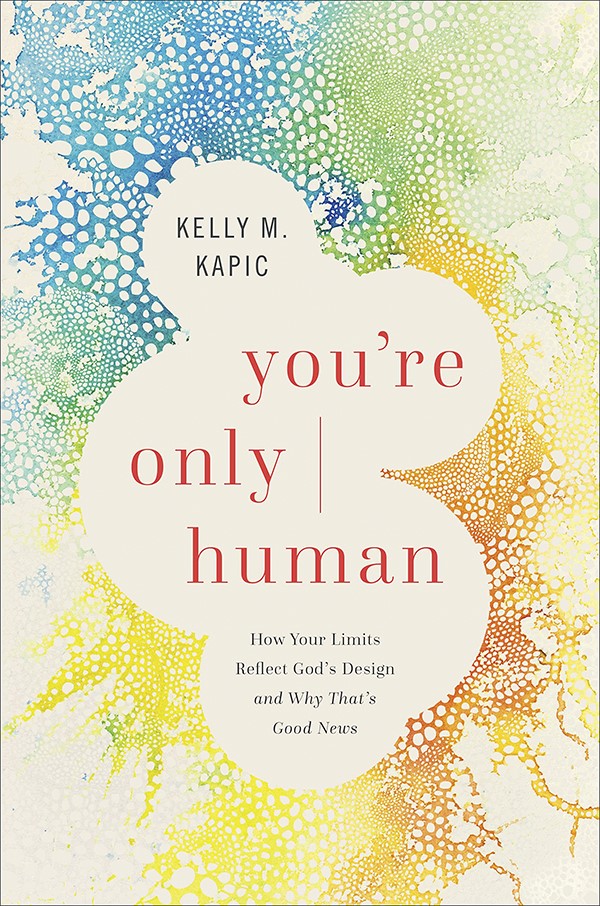You’re Only Human: How Your Limits Reflect God’s Design and Why That’s Good News, by Kelly M. Kapic (Brazos, 2022)
The hare once asked the tortoise, “Do you ever get anywhere?” While this story may be something that we read to children, the question is one that often haunts all of us who live in Western culture with its emphasis on—and worship of—productivity and efficiency. We are conditioned to despise our limitations, and this can be a recipe for disaster. After being a Christian for decades, writing several books, and teaching theology at Covenant College for over twenty years, Kelly Kapic is biblically grounded, theologically sound, seasoned, and wise in his nuanced effort to recast Christians’ view of human limitations as a gift from God rather than a product of sin. This shift in thinking is intended to help Christians “praise God for [their] limits” (11). This paradigm shift is crucial for reclaiming a humble, biblically rooted anthropological vision of human beings as limited and finite—and therefore dependent—creatures. Due to my specific focus on Christian education both in formal and ecclesial settings, this review will be much more education-focused than the general Christian audience to which Kapic writes. What follows is divided into two sections: (1) key insights and analysis, and (2) critique and conclusion.
Key Insights and Analysis
The book is divided into two parts, “Particularity and Limits” (part 1) and “Healthy Dependence” (part 2), each containing five chapters. The first section is focused more on the limitations we face and how dependent upon God and others we really are, while the second part shifts to what we need to understand and the steps that we can take to peacefully live with God, ourselves, others, and the earth (i.e., to reach human flourishing). In my view, chapter 7 alone is worth buying the book and is similar in its focus and aim to John Mark Comer’s The Ruthless Elimination of Hurry, which I found to be inspiring, convicting, and helpful.
The first section is focused more on the limitations we face and how dependent upon God and others we really are, while the second part shifts to what we need to understand and the steps that we can take to peacefully live with God, ourselves, others, and the earth.
Part 1 begins with a positive appraisal of our vulnerability, limitations, and dependent creaturely status. Kapic describes the original, pre-fall goodness of creation and emphasizes that human beings were limited in many ways before sin and death entered the world. This point is key to his overall project because it provides a biblical foundation for decoupling our understanding of human limitations from sin so that we can properly view them as a “beneficial gift to be honored” rather than a “fault to overcome” (12). Both God’s glory and human flourishing—ours and the people around us—are at stake. This is the theological foundation upon which the entire book is built.
After laying this foundation, Kapic focuses on how an inordinate emphasis upon sin can actually prevent us from knowing important truths that have their origin in creation: the original goodness of human beings, that we are created in God’s image (imago Dei), and that he actually likes us. Kapic suggests that our anthropology needs to rediscover a balance between creation and redemption. We are not horrible creatures that God hates that now need saving—a redemption-only focus. Rather, human beings as a subset of creation are the only creatures made in the image of God for fellowship with God. Our intrinsic worth is directly rooted in these truths. Thus, we are glorious, although fallen, and the strength of the Christian worldview is its robust explanatory power in being able to simultaneously account for both our dignity and depravity. Thus, while emphasizing sin and our need for a Savior, our “fallen humanity’s sinfulness” must not become the sole or uppermost theme in our assessment of humanity (25). Kapic admits that this is where his own Reformed tradition has sometimes gone wrong (22).
His focus on the limits of our bodies is extremely valuable for the simple fact that it directs our attention to where many Christians—especially evangelical and Reformed thinkers—often do not focus: the importance of nature and our physical bodies in the spiritual life.
In the last three chapters of part 1, Kapic focuses on the limits of our physical body, the value of appropriate physical touch, and how identity formation requires other people and is not self-generated. His focus on the limits of our bodies is extremely valuable for the simple fact that it directs our attention to where many Christians—especially evangelical and Reformed thinkers—often do not focus: the importance of nature and our physical bodies in the spiritual life. Our bodies are not unimportant, nor are they evil containers for the soul (cf. Plato, Plotinus, Gnosticism, Descartes, etc.); instead, they play an integral role in our formation and growth. Thus, the chapter is a corrective of sorts. He writes that the incarnation of Christ is “God’s affirmation of our created materiality” (46), limitations and all, and is one way that God affirms the “high value on the particular humanity and finitude of each of us” (39).
This is an abridged version of this article. To read more, subscribe to the print or digital edition of Christian Educators Journal.
Dr. B. J. Condrey is the Bible Faculty Chair and Curriculum Specialist at Enlightium Academy. He also teaches an introduction to philosophy, ethics, and logic at Hutchinson Community College and is the author of a number of books and articles.
